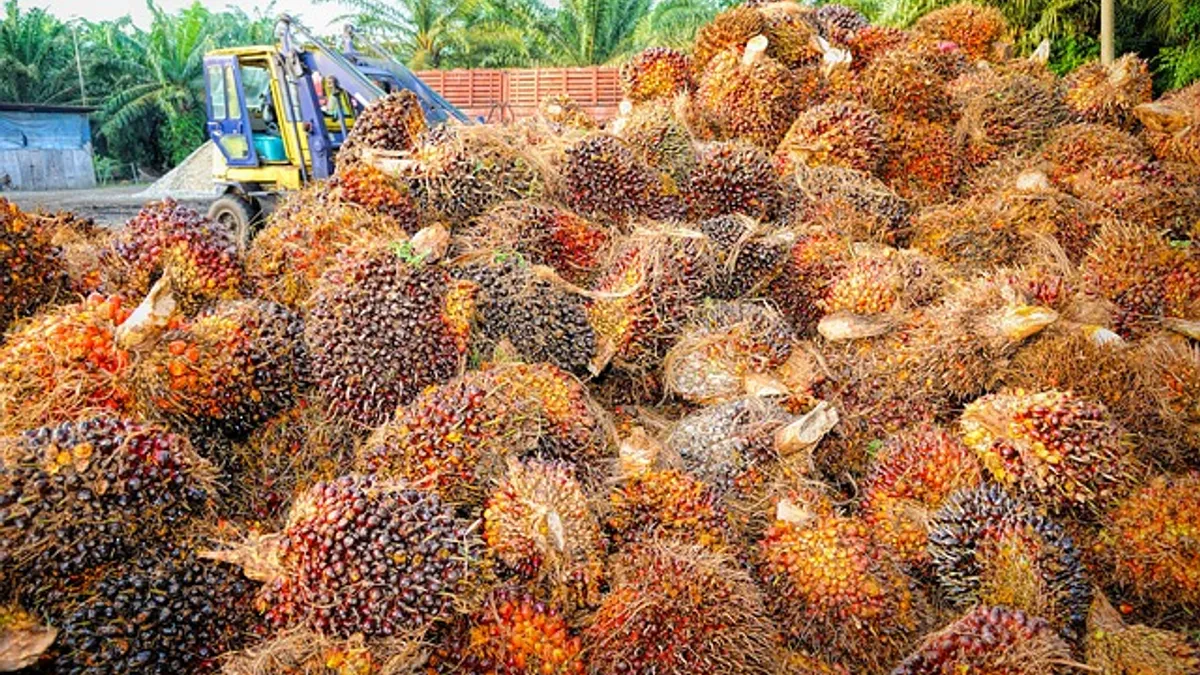Dive Brief:
- The Consumer Goods Forum will not meet its 2020 goal to achieve net-zero deforestation in supply chains for palm oil, soy and cattle, CDP concluded in a report Monday.
- Danone, Nestlé, Unilever and L'Oréal top CDP's list in terms of lessening their deforestation risk while ConAgra, Kraft Heinz, Tyson Foods and Restaurant Brands (owner of Burger King) have the highest deforestation risk exposure of the 22 companies studied.
- No company has achieved complete traceability of its palm oil, soy or cattle supply chain, according to CDP.
Dive Insight:
There is a "growing gap between companies' ambitions and targets," read the report, indicating that corporate understanding and awareness of the deforestation problem is high, but understanding of effective solutions may be low.
What has become clear to experts in the 10 years since The Consumer Goods Forum set its 2020 goal is more immersive on-the-ground work is needed to achieve reductions in deforestation.
This is especially true since current certifications and traceability systems are not doing the job, according to CDP.
Sourcing certified commodities is a common first step for CPGs when wading into the problem of preventing deforestation, but it is not enough to quell the practice. Only 20% of global palm oil production is currently certified and such certifications for beef and soy are less-developed.
Some suggest a "jurisdictional approach" in which corporations and non-government actors work with local authorities to change the dynamics on the ground. CDP Senior Research Analyst Ling Sin Fai Lam told Supply Chain Dive a "landscape approach" has proven effective.
"Landscape approaches recognize that the competing priorities of people living and working within the landscape create problems which cannot be clearly formulated or solved. This means that they involve continuous adaptation and some degree of 'muddling through'," Lam told Supply Chain Dive in an email. This approach may involve local government, but also often involves educating and incentivizing regenerative agriculture practices.
Though the concept of more immersive work to stem deforestation is roughly 10 years old within the non-governmental organizations who focus on deforestation in supply chains, corporate buyers of these goods may be less aware. Eight of the 22 companies surveyed by CDP are involved in this type of work.
Lam said the consumer goods companies studied for the report were unlikely to be aware of the approach, but they also likely lack the expertise to enact it since CPG companies are many tiers from the work of agriculture and often lack internal expertise in this area.
Some companies — Lam named Unilever for one — are working on regenerative agriculture pilots to understand how better practices could be applied and encouraged at scale.
Beyond changing the dynamics on the ground, CDP suggests shortening supply chains for deforestation-prone commodities — literally reducing the number of tiers or transactions within the procurement of an at-risk commodity — may be a productive step toward reducing the practice.
"Shortening supply chains simplifies traceability and transparency for businesses who wish to ensure sustainable sourcing. It also brings them closer to the producers that need to be engaged to enhance and protect forests and improve the sustainability of agriculture and forestry," said Lam.
CDP warned against a strategy that many deforestation-conscious consumers have adopted to keep from contributing to the problem — avoiding these commodities altogether. The nuance of each commodity can give the practice unintended consequences, explained CDP.
"Substituting palm oil with other types of vegetable oil in the face of increasing consumer pressure could inadvertently lead to further deforestation,"' reads the report.
Despite the failure to reach net-zero deforestation, Lam said the 2020 goal encouraged the involved companies to examine current sourcing practices and spread the idea that corporations cannot solve deforestation looking only within their own supply chains. More systematic work is required.
"Companies may reassess their level of ambition in the future, but these commitments have helped to raise awareness and deepen understanding of these issues for the future," said Lam.














